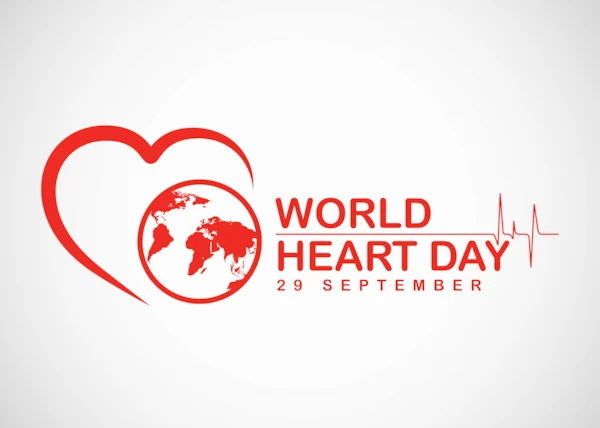Relationship Between Obesity and Coronary Heart Disease
Explore the connection between obesity and coronary heart disease. Learn how excess weight increases the risk of heart conditions, the underlying mechanisms, and strategies for prevention and management through lifestyle changes and medical interventions.

Written by Dr Sonia Bhatt
Last updated on 3rd Jul, 2025
Obesity has today become one of the largest problems in the world, affecting millions of people. It is defined as an abnormal increase in body fat, with a body mass index (BMI) of 30 or higher. This condition is more than just a cosmetic concern—it significantly increases the risk of chronic illnesses, particularly coronary heart disease (CHD).
CHD is a critical cardiovascular disease where the blood vessels supplying blood to the heart get constricted or are blocked completely, resulting in events such as heart attacks.
In the course of fifty years, global obesity rates have risen, and so have instances of CHD. Knowledge of exactly how obesity affects heart health could help in planning strategies that might help decrease the risk of CHD.
The Connection Between Obesity and Heart Health
Obesity directly and indirectly contributes to the progression of heart disease:
The strain on the Heart: Obesity causes pressure on the heart and results in hypertrophy of its muscles, thus increasing heart failure.
Inflammatory Impact: Obesity causes chronic inflammation, leading to ongoing vascular damage and the development of arterial lesions.
Disrupted Metabolism: Obesity causes insulin resistance, which hinders the body's use of glucose and fatty acids, worsening diabetes and dyslipidemia—both well-known risk factors for Coronary Heart Disease (CHD).
Role of Visceral Fat
Scientific research repeatedly points out that not all fat in the body is healthy for the heart. Intra-abdominal fat (fatty tissue in the abdominal cavity) mainly involves the organs; for example, the liver poses more risk to CHD than subcutaneous fat. Omental fat ( fatty tissue that protects the intestines and other abdominal organs in place) especially secretes cytokines and adipokines, hormones that amplify inflammation, derange hormonal homeostasis, and cause atherosclerosis. All of them combine to increase the risk of hypertension, syndrome, and other cardiovascular complications.
Mechanisms Linking Obesity to Coronary Heart Disease
Some of the identified mechanisms linking obesity to CHD include:
Endothelial Dysfunction: Excess fat triggers inflammation, reducing blood vessel elasticity and leading to poor blood flow and increased vascular resistance.
Oxidative Stress: Adipose tissue produces reactive oxygen species (ROS), damaging endothelial cells and promoting vascular dysfunction and plaque instability.
Hormonal Imbalance: High leptin levels increase inflammation and vessel stiffness, while low adiponectin levels impair vascular protection and insulin sensitivity.
Risk Factors and Populations at Risk
It’s important to keep in mind that certain groups face higher risks of developing CHD due to obesity. These groups are:
Age and Gender: While CHD is found to be more common in men, postmenopausal hormonal changes raise women's mortality rates as well.
Genetic Predispositions: Both obesity risk and CHD risk are dependent on family history.
Lifestyle Choices: Sedentary habits, overconsumption of calorie-rich food and modern conveniences often lie at the centre of obesity, raising the risk levels.
Socioeconomic Factors: Limited access to good quality and affordable foods and health services increases the chances of obesity and related CHD in disadvantaged communities.
Consult Top Doctors For Coronary Heart Disease
Role of Obesity in CHD Pathophysiology
Obesity accelerates the development of CHD through several physiological mechanisms:
Atherosclerosis: Obesity increases cholesterol levels in the body, opening the floodgates of plaque formation within the arterial walls, thereby limiting blood vessels.
Blood Pressure: Obesity elevates blood pressure by stimulating hormone effects in the body that control sodium and water retention leading to high blood pressure.
Cholesterol Levels: Obesity has negative effects on cholesterol profiles. It decreases HDL cholesterol—the “good" cholesterol—and increases LDL—the “bad" cholesterol, as well as triglycerides—all of which cause arterial damage.
These physiological disruptions significantly elevate the risk of ischemic events such as heart attacks and strokes.
Diagnosing Heart Disease in Obese Individuals
Diagnosing Coronary Heart Disease (CHD) in obese individuals requires a nuanced approach due to the unique challenges brought by excess body weight. The added complexity stems from both physical and physiological factors that typically hide common symptoms and make diagnosis harder.
Physicians utilise a range of diagnostic tools to detect CHD in obese patients. Some of the most common ones include:
Electrocardiogram (ECG): Detects heart rhythm abnormalities and past heart attacks.
Echocardiography: Uses ultrasound to assess heart structure and function.
Stress Testing: Measures heart performance under stress.
Advanced Imaging: CT and MRI provide detailed views of coronary arteries and heart structures.
Blood Tests: Identify cardiovascular risks by measuring cholesterol, triglycerides, glucose, and troponin levels.
Coronary Angiography: Visualises blood flow in coronary arteries using contrast dye.
There are several challenges in diagnosis due to obesity that need to be kept in mind. Excess fat can reduce the clarity of echocardiograms and other tests, limiting the ability to detect heart abnormalities. Whereas equipment like CT or MRI scanners have weight restrictions. Given these challenges, physicians often take a multi-modal approach to ensure accurate diagnosis:
Combining traditional tools with advanced imaging techniques to improve diagnostic accuracy.
Tailoring stress tests to individual capabilities, such as using pharmacological agents for patients unable to perform physical exercise.
Relying on medical histories and thorough physical examinations to contextualise test results.
Get Your CHD Symptoms Checked
Treatment and Management
Treating CHD in obese individuals involves a multifaceted approach:
Lifestyle Changes: This involves adopting a heart-healthy diet, such as the Mediterranean or DASH diet (Dietary Approaches to Stop Hypertension diet). In addition, engaging in regular aerobic exercises is also recommended, which improves cardiovascular endurance and aids weight loss.
Medications: Cholesterol-lowering drugs, like statins, blood pressure management with antihypertensive medications, diabetes management through insulin sensitisers or other glucose-lowering therapies are also used.
Surgical Interventions: For severe obesity, bariatric surgery is often considered, which reduces cardiovascular risk factors by facilitating substantial weight loss. Coronary interventions, such as angioplasty or bypass surgery, may be needed as well to treat advanced CHD.
Preventing Obesity-Related CHD
Preventive strategies are critical to reducing the burden of obesity and CHD. These can take the form of both individual efforts as well as larger public health initiatives:
Individual Efforts:
Focus on weight management and consumption of a properly balanced diet.
Restraint from taking lots of sweet drinks, processed foods and those containing trans fats.
Engage in regular physical activities.
Public Health Initiatives:
Use of information campaigns in teaching the population the value of proper dieting and physical activity.
Measures regarding the availability of cheap and healthy food products.
Accessibility of public places to facilitate easy walking, increasing green coverage in towns and cities.
Impact on Quality of Life
Obesity and CHD are two common ailments that have a significant influence on physical and psychological well-being. Physically, arthritis limits mobility, while chronic fatigue and related conditions like diabetes and sleep apnea further restrict movement, affecting overall well-being. These are more so faced with emotional issues as the majority of obese and CHD patients suffer from depression, anxiety, and low self-esteem. This is also sensitive to the fact that psychiatric issues need to be treated alongside physical ones in order to enhance overall health and, consequently, wellness.
Prognosis and Long-Term Management
The prognosis for individuals with obesity-related CHD varies based on factors such as the severity of the disease, adherence to treatment plans, and lifestyle modifications. Long-term management strategies include regular follow-ups with healthcare providers, sustained weight management, and a commitment to heart-healthy living. Early intervention and a proactive approach can significantly improve outcomes and reduce the risk of complications.
Conclusion
Considering so many factors, it is not wrong to assert that there is a rather direct link between obesity and coronary heart disease. Obesity can be considered the main risk factor for several pathways that result in the development of cardiovascular disease.
Reducing obesity and managing overweight and obesity through dietary and physical activity and pharmacologic and nonpharmacologic therapies are vital for heart health and prevention.
Integrated approaches at the person, population, and policy levels can primarily lead to a decreased rate of obesity and decreased risks of obesity-related diseases—opening the door to healthier lives.
Consult Top Cardiologist
Consult Top Doctors For Coronary Heart Disease

Dr. Sudeb Mukherjee
Cardiologist
15 Years • MBBS, MD General Medicine, DM Cardiology
Kolkata
Livgastro, Kolkata

Dr. Sumanta Chatterjee
Cardiologist
12 Years • MBBS,MD General Medicine,DM Cardiology
Kolkata
HealthYou Speciality Clinic & Diagnostics., Kolkata
(25+ Patients)
Dr. Praveen Kumar
Cardiologist
25 Years • MBBS, MD (Medicine), DM (Cardiology)
Ghaziabad
Navaanya wellness, Ghaziabad

Dr. Nataraja Setty
Cardiologist
21 Years • MBBS, MD (General Medicine), DM (Cardiology)
Bengaluru
Sapphire heart care clinic, Bengaluru
Dr. Dixit Garg
Cardiologist
10 Years • MBBS , DNB (General medicine) , DNB (cardiology)
Gurugram
Smiles & Hearts, Gurugram
Consult Top Cardiologist

Dr. Sudeb Mukherjee
Cardiologist
15 Years • MBBS, MD General Medicine, DM Cardiology
Kolkata
Livgastro, Kolkata

Dr. Sumanta Chatterjee
Cardiologist
12 Years • MBBS,MD General Medicine,DM Cardiology
Kolkata
HealthYou Speciality Clinic & Diagnostics., Kolkata
(25+ Patients)
Dr. Praveen Kumar
Cardiologist
25 Years • MBBS, MD (Medicine), DM (Cardiology)
Ghaziabad
Navaanya wellness, Ghaziabad

Dr. Nataraja Setty
Cardiologist
21 Years • MBBS, MD (General Medicine), DM (Cardiology)
Bengaluru
Sapphire heart care clinic, Bengaluru
Dr. Dixit Garg
Cardiologist
10 Years • MBBS , DNB (General medicine) , DNB (cardiology)
Gurugram
Smiles & Hearts, Gurugram



